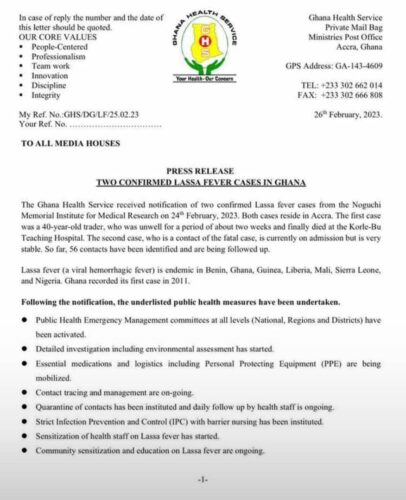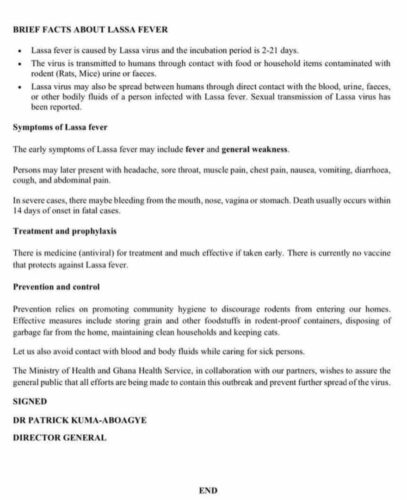Two verified instances of Lassa fever were reported by the Ghana Health Service (GHS) on February 24, 2023, following tests by the Noguchi Memorial Institute for Medical Research.
Both instances, according to the GHS, are from Accra.
Public health emergency management groups at all levels (National, Regions, and Districts) have been engaged, according to a statement dated February 26 and signed by the director-general, Dr Patrick Kuma-Aboagye.
He indicated that thorough inquiries, including an environmental evaluation, have been made.
“The first case was 40-year trader, who was unwell for a period of about two weeks and finally died at the Korle-Bu Teaching Hospital. The second case, who is a contact of the fatal case, is currently on admission but is very stable. So far, 56 contacts have been identified and are being followed up,” Dr Aboagye stated.
The second case, a relative of the deadly case, is admitted and in perfect condition right now. It stated that 56 connections have been found and are being followed up on so far.
The Lassa virus is the source of lassa fever, which has a 2–21 day incubation phase.
Humans can contract the virus by eating or touching domestic objects that have been tainted with rodent urine or feces, such as those from rats or mice.
Through direct touch with the blood, urine, feces, or other bodily secretions of an individual suffering from Lassa fever, the Lassa virus may also be transferred between people.
Lassa virus spread through sexual contact has also been documented.
Lassa fever can cause a fever and generalized weakness.
Read the statement below:


Source: Ghanatodayonline.com
 Ghanatodayonline.com News, Politics, Health, Education & More
Ghanatodayonline.com News, Politics, Health, Education & More




